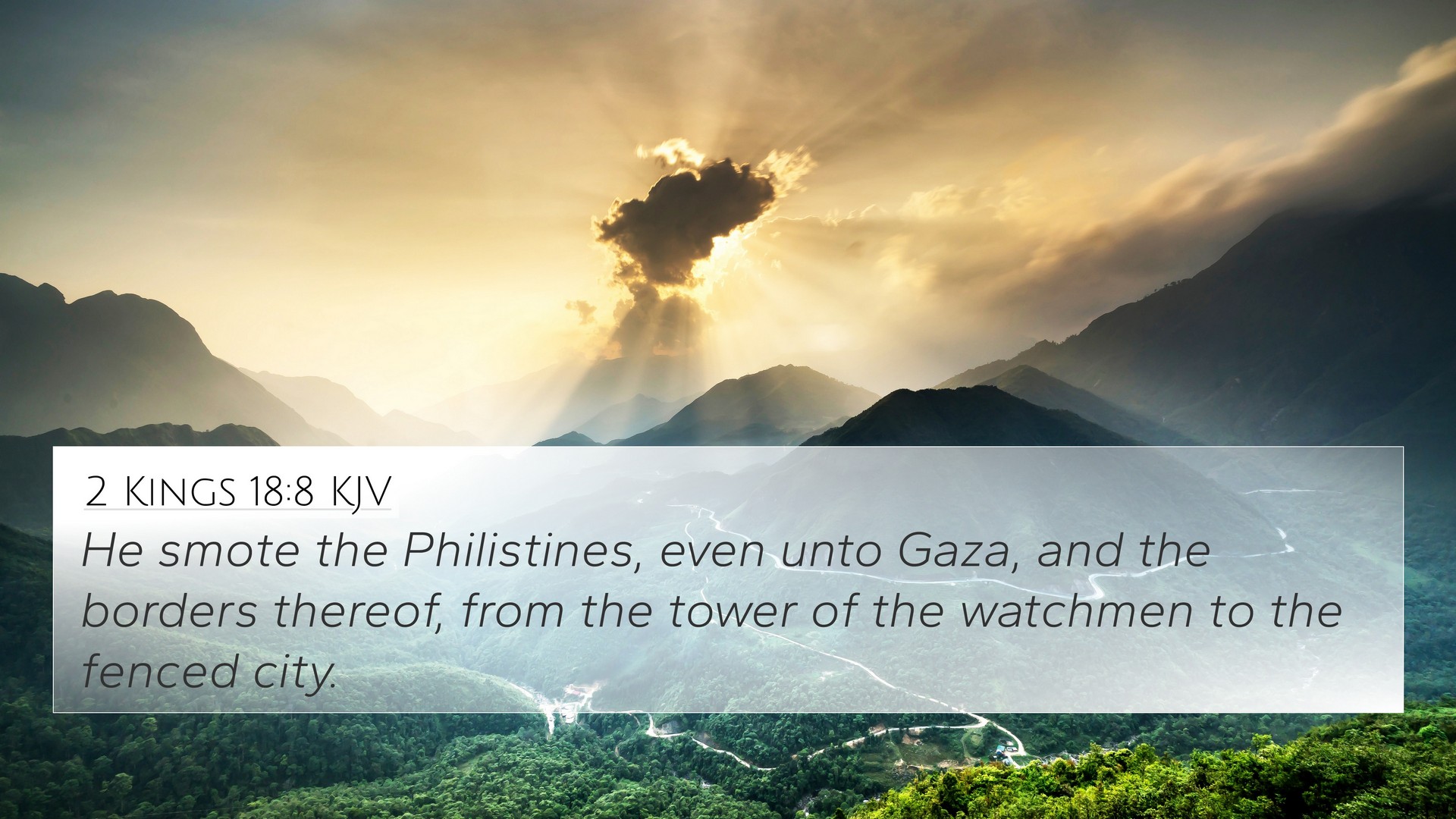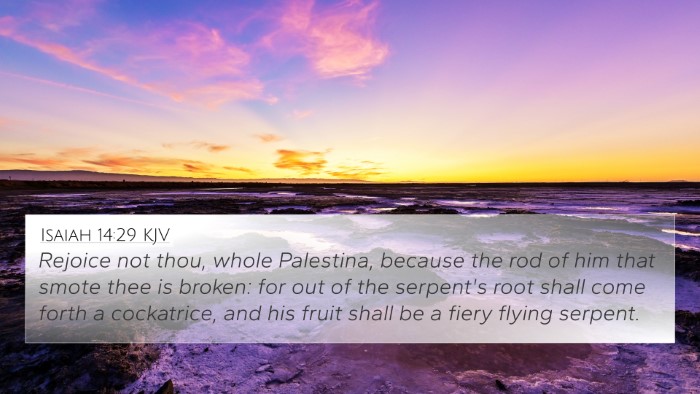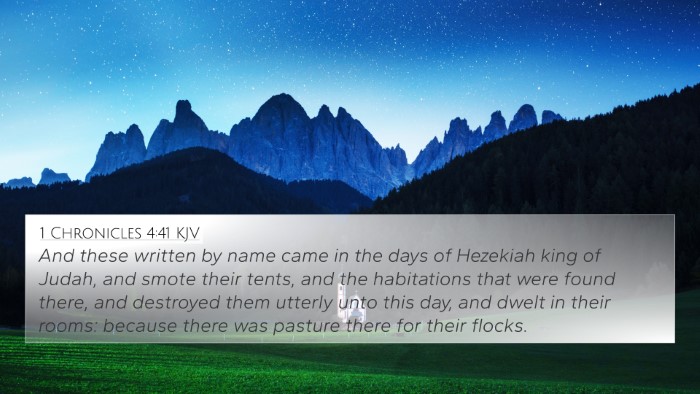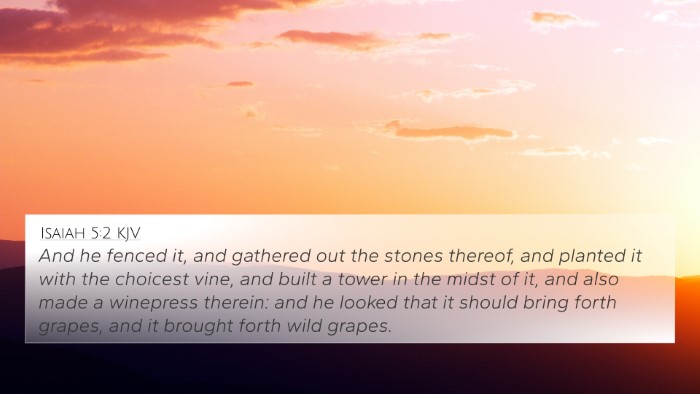Understanding 2 Kings 18:8
Verse Context: 2 Kings 18:8 states: "He struck down the Philistines as far as Gaza and its territory, from watchtower to fortified city." This verse highlights the military achievements of King Hezekiah of Judah.
Summary of Interpretations
This verse demonstrates the successful military campaigns and reforms initiated by King Hezekiah. Matthew Henry, Albert Barnes, and Adam Clarke contribute to a deeper understanding of its significance:
- Matthew Henry: He emphasizes the courage and divine favor that facilitated Hezekiah's victories against the Philistines, showcasing God's power in delivering his people from their enemies. Henry suggests that these achievements were not just militaristic but also served as a reaffirmation of God's covenant with Israel.
- Albert Barnes: Barnes focuses on the geographical scope of Hezekiah's conquests, illustrating the extent of Judah's influence over nearby regions. He points out that the mention of cities shows the strategic importance of these victories for the Kingdom of Judah and for the national identity of its people.
- Adam Clarke: Clarke provides a historical context, noting that the Philistines had been a persistent threat to Israel. He asserts that Hezekiah's success against them reflects a turning point for Judah, emphasizing the restoration of faith in God as Israel's protector.
Thematic Connections
This verse is underpinned by several theological themes, including:
- Divine Intervention: The victories gained are portrayed as outcomes of divine support, illustrating the belief that God fights for His people.
- Restoration of Worship: Hezekiah's reforms included a return to true worship, which is often illustrated as a precursor to military success.
- Historical Significance: The verse connects to the Kingdom of Judah’s narrative and its role in the wider scope of biblical history.
Cross-References
To grasp the full impact of 2 Kings 18:8, here are some pertinent cross-references:
- Isaiah 36 & 37: These chapters recount the Assyrian siege and God's miraculous intervention.
- 2 Chronicles 32:1-23: A parallel account detailing the same events and Hezekiah's reforms.
- Psalm 76:1-3: A psalm celebrating God's deliverance, applicable to Hezekiah's military successes.
- 1 Samuel 17: The account of David and Goliath reflects the ongoing conflict with the Philistines and showcases faith in God to overcome giants.
- Micah 5:6: A prophecy regarding the destruction of the Philistines, aligning with Hezekiah's victories.
- Jeremiah 47:1-7: A prophetic message concerning Philistia that shows their eventual downfall.
- Romans 8:31: "If God is for us, who can be against us?" resonates with the theme of divine backing in battles.
Biblical Themes Explored
This verse encapsulates various themes critical to understanding the broader narrative of the Bible:
- Faith and Trust in God: Hezekiah’s actions are rooted in his trust and reliance on God.
- The Importance of Leadership: Hezekiah’s reign exemplifies how godly leadership can turn a nation back to God.
- Sovereignty of God: The unfolding events demonstrate God’s ultimate plan for His people transcends their struggles.
Conclusion
2 Kings 18:8 serves as more than a historical account; it is a testament to the relationships between faith, divine intervention, and leadership. The cross-references provided underscore the interconnectedness of biblical texts and themes. By engaging in cross-referencing, readers can gain a fuller understanding of scripture and its applicability to spiritual life today.
Tools for Further Study
For those interested in exploring these themes and connections further, consider utilizing:
- Bible concordance: A valuable resource for identifying related verses and concepts.
- Bible cross-reference guides: These tools illustrate the intertwining of scriptures.
- Bible reference resources: A comprehensive method for systematic study.
Engaging with Scripture
Understanding verses like 2 Kings 18:8 requires methodical engagement with the text. Following the path of cross-referencing, one can uncover not only the context of a single verse but also how it dialogues with the entire canon of scripture.








